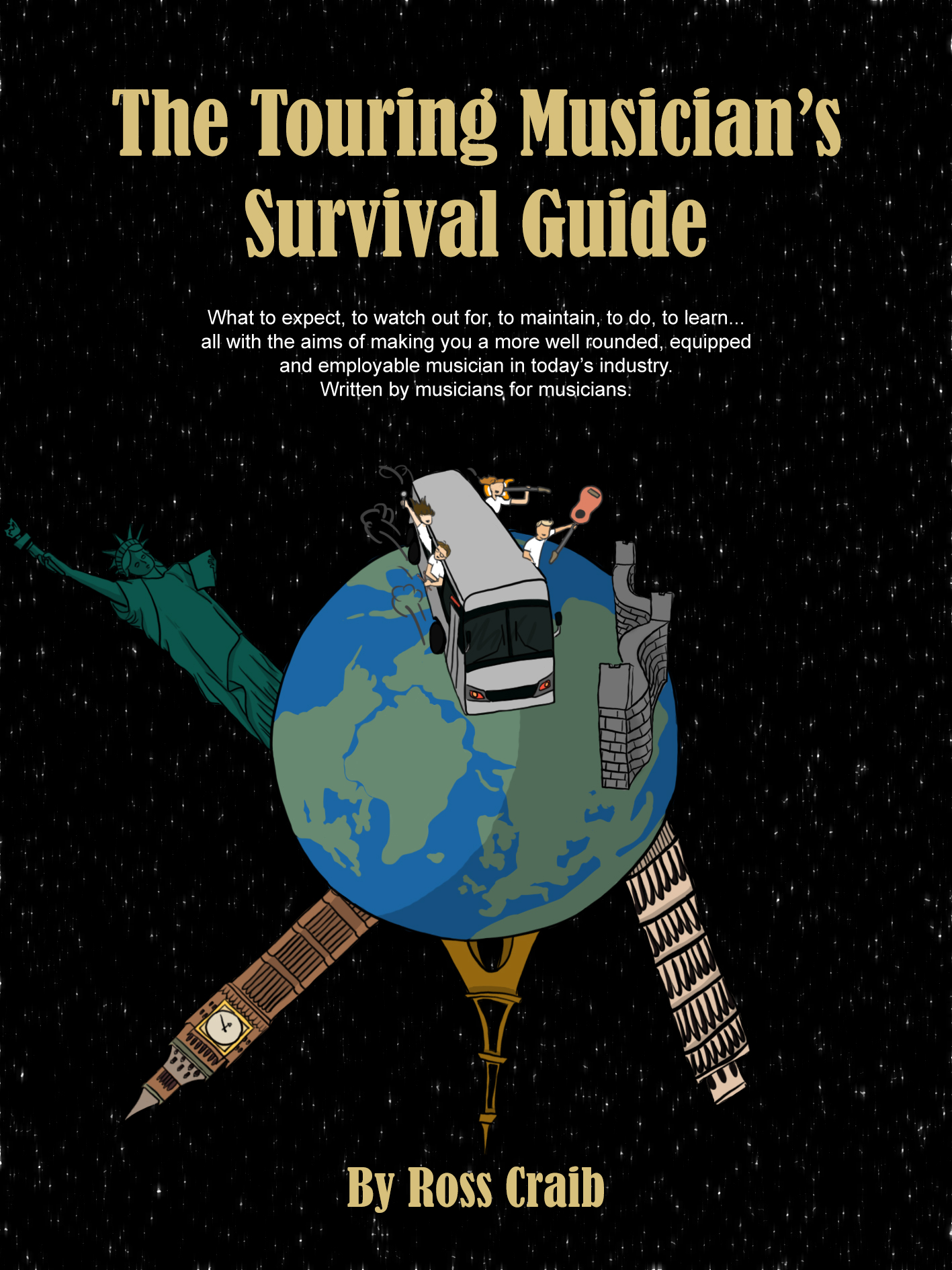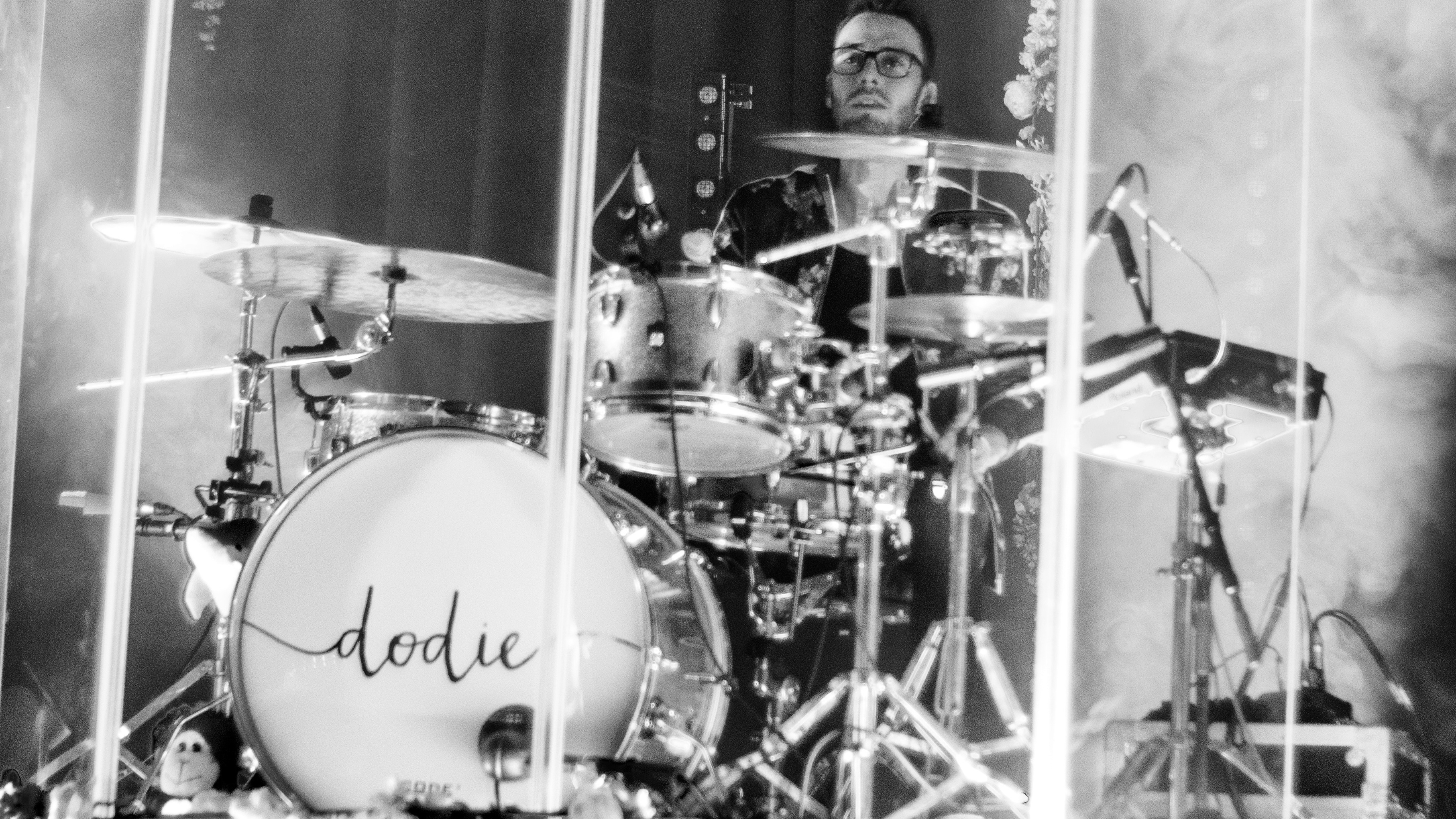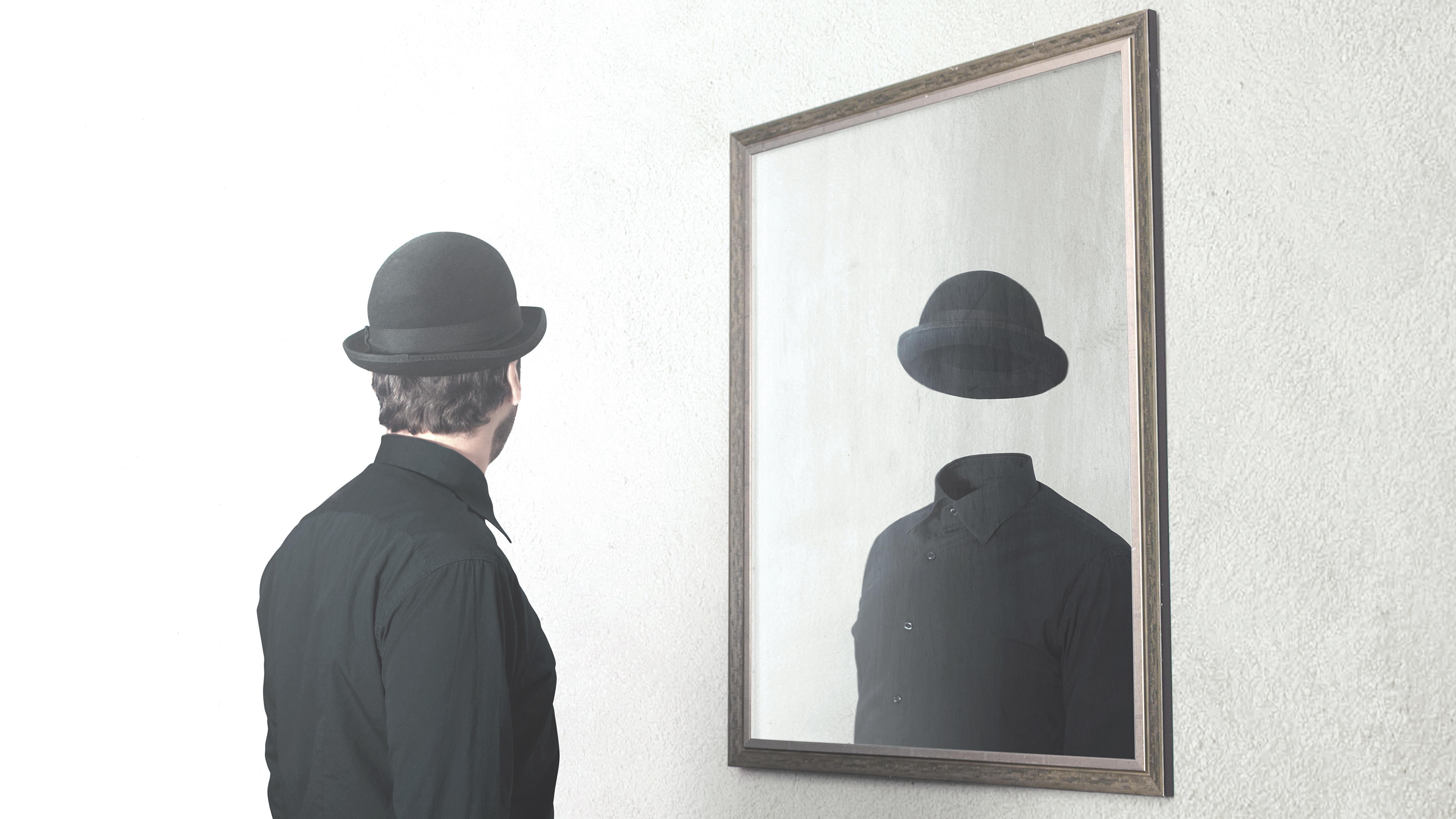10 things touring musicians need to know
#2: No number 2s.

Want all the hottest music and gear news, reviews, deals, features and more, direct to your inbox? Sign up here.
You are now subscribed
Your newsletter sign-up was successful
Music is a beautiful phenomenon that brings people from all cultures and backgrounds together; it allows us as musicians to cross borders and travel to far off places to share our message and talents with others. It is a great way of life and if successful, a great way to live that life.

From the outside looking in, it may seem all wonderfully 'Rock 'n Roll', but be aware this life isn't for everyone! You have to be prepared for some hurdles and sacrifices along the way if you choose to take the plunge.
These are the things that are often left unsaid – the tough times, the long slogs, the money issues, time and energy it takes to succeed and maintain at a sustainable level.
This is why I recently sat down to write (in the simplest of terms) what is expected of a modern day musician on tour and in today's industry in my new book The Touring Musician's Survival Guide.
Having spoken with touring friends and from my own experiences, I've compiled a shortlist of the things you need to know to help survive a life on the road, while maintaining good relationships, health and wellbeing. It's easier said than done...

1) Tour buses are 24-hour hotels...
...and just like any other hotel, people will be sleeping at different times of day! Be respectful at all times! Tour bus drivers sleep on the bus in their own section when the bus is parked up - If you are awake, they are likely asleep!
Don't go slamming doors, cranking the music or having rowdy FIFA footie tournaments unless you want a tired bus driver who is responsible for your safety.
Want all the hottest music and gear news, reviews, deals, features and more, direct to your inbox? Sign up here.
The bus is also your home for the duration of the tour, so keep it clean and safe! If you are lucky enough to have a 'junk bunk'* on the bus, you can throw bags, shoes, coats etc. in there...on the flip side, to avoid cluttering the communal areas, you may have to sleep with them – So try to pack your overnight essentials wisely!
*A junk bunk is a spare bed on a tour bus that is not being used
Common sense: If you are the last off the bus, make sure you close and lock the door behind you.
No number 2's

Don't be that guy
It's probably good at this stage to note the toilet rule on a sleeper bus – No solids! Get used to having a routine of using the facilities in the venues before getting on the bus. I've heard nightmare stories of the toilet blocking, overflowing and destroying everyone's suitcases after filtering into the bay of the bus... don't be that guy.
3) Don't miss bus call – it's expensive
The day sheet is the daily schedule that will list all timings for band and crew
With such tight schedules on a tour, it is good to be aware of the kind of 'calls' you are going to see on the day sheet. The day sheet is the daily schedule that will list all timings for band and crew, usually prepared by the Tour Manager (TM).
Lobby Call: The time all band and crew have to be ready to leave the hotel.
Load In / Load Out: Plus Technical details for crew eg. Is it a flat push to stage or are there stairs to navigate, how many local crew will be there etc.
Band Call: The time the band are expected to be ready for soundcheck.
Doors + support times
Stage Time
Curfew: All music must be stopped by this time.
Venue Cleared: The time all members have to exit the venue.
Bus Call: The time the bus will leave for the next destination.
Timings are all subject to change. However, it is highly advisable you never miss them unless you wish to annoy everyone waiting for you;
I've been guilty of missing an early bus call one time due to oversleeping – long story short, I got left behind and had to make my own way on my own dime from Sicily to London.
In fairness, the TM did everything he could to reach me, but for the sake of the rest of the touring party, they had to leave to catch their flight from the closest airport – 3 hours away! As ashamed of missing it as I am, it goes to prove just how strict certain calls can be. I learnt my lesson the hard... and expensive way!
4) Money

Clarify your fee before you set off on the tour and NEVER speak of it again
It's a difficult subject in any industry to talk about. Clarify your fee before you set off on the tour and NEVER speak of it again. Nobody wants to get the reputation of just being in it for the money! If you leave those talks at the door, it leaves more room to just enjoy the tour and focus on playing the best shows you can.
Dependant on the level of tour, your fees will likely vary from day to day; Often the rates are broken down as follows:
Show day
Rehearsal day
Off / Travel day
Some tours will just pay a flat day rate, however the majority will have a variance.
Regardless of this variance, you should always try to ensure you negotiate a rate you are comfortable with for every day you are away from home, as this is another day you cannot work for anyone else.
It can feel precious, but it is both your time and your skills the artist is paying you for, so don't feel bad trying to secure payment for those 'off' days.
5) Be a people-person
Privacy is a rare thing on tour and sensitivity is much appreciated
Say goodbye to your creature comforts! You will be living in very close proximity with your colleagues for weeks on end. With space for up to 15 other people on a sleeper bus or sharing hotel rooms (sometimes even beds) on splitter tours, you have to be a people-person with an open mind!
Understand when people need their space and try not to retaliate if someone gets a bit grumpy – everyone will have a day where their fuze is just a bit too short. Privacy is a rare thing on tour and sensitivity is much appreciated.
Make time for yourself, which leads nicely on to...

6) Be productive
Don't look back on the tour thinking “I wish I'd seen that"
You will have a lot of downtime on tour, so try to be efficient. It is very easy to be lazy, but try to set yourself tasks! You are being paid by the artist for your time, but you are not needed 24/7, so make the most of this opportunity and try to capitalise.
If you have friends in cities you haven't seen in years, use this opportunity to meet them - this is one of the luxuries of being a touring musician. If there are any musicians or teachers you look up to, or people you've really wanted to get advice from, get in touch or see if they're willing to let you buy them lunch so you can pick their brain about things.
If you've never been to a city before, wake up early to explore it; It's very easy to wake up late and spend an entire tour stuck inside the venue. Don't look back on the tour thinking “I wish I'd seen that”.
7) It's a marathon, not a sprint!

Tours are long. In such unnatural environments, if you run yourself into the ground it will be hard to fully recuperate. Remember; You go on tour to make money and build your fan base. If you give your fans a sub-par show, it will affect your business!
Alcohol is the biggest culprit! Given that it's just – always – there, it does become very easy to abuse and given the pressures and celebrations surrounding a show night on night, dangerous routines are never too far away.
Don't get me wrong, I'm not condemning alcohol; In fact it is the lifeblood of many music venues, which without would struggle to support live music! It is not the substance that is bad, it's the abuse. If you can control it, it is a great tool to be enjoyed.
Try to pick your moments to have big nights out - The best nights to choose are “Roadie Friday's” (Nights where you will have no show the day after).
8) Remember why you started playing in the first place!
Think of who inspired you...the greatest shows you've ever seen...the songs that helped you through those tough teenage years of being heartbroken, different, depressed or angry! I have my list of songs and I will forever idolise the bands that wrote them! This is why I found music.
Up until very recently, though, I'd lost sight of this; Sometimes it's easy to forget when you grind it out in this business for so long; You fall into a routine of long drives, load ins, sound checks, shows, pack downs and partying – it becomes menial on the surface, but you need to remind yourself it most definitely is not!
The moment that turned it around for me was my life in a full romantic and nostalgic circle; I was lucky enough to play a sold out show in the very same venue I'd seen my first ever gig - a sold out Jimmy Eat World concert, 15 years prior!
I realised that through all the personal and musical struggles, I had achieved my dreams – I was living them right then and there and continue to live them – my job is my passion! I've now vowed to remind myself more often and I encourage you to do the same – This is why we play.
9) Business You and Personal You

First flagged to me by a music acquaintance, Sam Skirrow (Clean Bandit), essentially, it is the separation between two entities of yourself – the business and the personal.
The purpose of defining a separation between the two aids in achieving a sense of clarity and a better mental health.
Sam's article was titled “You are not your business”. It focusses on how easy it is to blur the lines; If you get fired from a gig, or a tour gets pulled or you get told not to “play like that”, it can feel like a personal attack – you take it personally...but it isn't personal – It's business.
More often than not it's down to things that fall outside of your control, such as budget cuts or not being the right fit for a project – these are based on your product and not based on you as a person.
“Thinking like this gives me a better headspace. I feel a sense of space and clarity in how to make business moves – it may even feel like my business is failing (and it often does), but, I don't feel like I am failing.”
The first step towards gaining clarity - Set up a separate bank account that you use solely for business transactions like the receipt of all monies and outgoings / expenses. Then, pay yourself a monthly affordable wage into your everyday account that you use for personal purchases (when you're not 'at work').
10) Dealing with mistakes

More than 70% of musicians had experienced panic attacks and anxiety, with close to 70% having experienced depression
The best thing about music is when you watch it, listen to it, play it in a gig scenario – It's live! It will never be EXACTLY the same again and that's what makes it special.
When it comes to mistakes, you will always be your own worst critic; It will always be way worse in your head than it appears to the audience. After all, they don't know the song arrangement inside-out like you do.
Rest assured, these feelings are a lot more common than you think!
Help Musicians, a UK run charity, recently performed a study into the mental health of 2,000+ musicians across the industry. They found that more than 70% had experienced panic attacks and anxiety, with close to 70% having experienced depression.
“When a musician develops a heightened fear of criticism, the result can vary from profound feelings of anxiety to depression...I honestly believed that every time I went on stage, every single person in the room was an expert in music and was critiquing every note.”
As worrying a statistic as that is, it is important to know you're not alone, so as to find ways to overcome any feelings of anxiety or fears of failure whilst on stage. If you do make a mistake, try to brush it off...it's happened and it's already in the past! The worst thing you can do is dwell on it for the rest of the show which will only hinder your otherwise enjoyable performance.
Conclusion
Try to cushion yourself by setting goals or tasks for when you return
Finally, it is important to remember your life and those back home; It becomes quite easy to live in a bubble on tour and we've all heard of those Post Tour Blues.
To avoid a full crash back to reality when the tour ends, try to cushion yourself by setting goals or tasks for when you return. Keep in contact with loved ones as they will keep you grounded and remember for new beginnings, other things must come to an end. You will always have the memories of it, so make sure they are good ones!
For more information on how to make yourself a more knowledgeable and employable musician, visit 'The Touring Musician's Survival Guide', where you can pick up a free downloadable chapter and see past reviews!